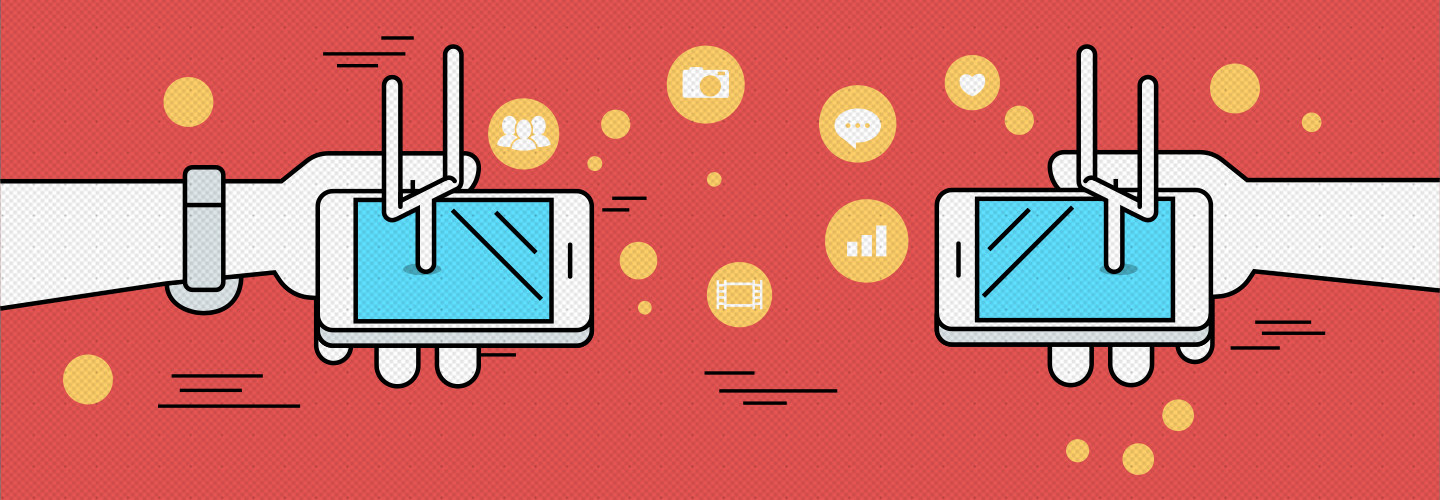NFL Sees Mobile Apps as Essential Fan Engagement Tool
Football fans have no shortage of sports apps to choose from to get the latest scores, breaking news and video highlights of their favorite teams. But from a strategic and business standpoint, the NFL and its teams want to keep eyeballs on their own applications.
In a bid to give fans what they want on any given day, the NFL has completely redesigned its NFL Mobile app. And beyond the league itself, NFL teams are beefing up their own mobile apps to provide football enthusiasts with a more personalized stadium experience, including the ability to order food and beverages and have them delivered to their seats.
The NFL rebuilt its mobile app from scratch this fall after surveying fans about what they wanted. Respondents told the league that when they launch the app, they want a differentiated home-screen experience based on day and time.
For example, if it’s Sunday, they want to immediately see scores of every game. But if it’s Wednesday, they want to see the latest news about the NFL and their favorite team. So the league fine-tuned its app to deliver that feature, says David Jurenka, the NFL’s vice president of digital media operations.
“There’s a lot of research, especially on millennial fans, that they are using their mobile devices 43 times a day, Jurenka notes, “so we are making sure we are crafting an experience that gives them the quick insights and bites of information they want, so it’s easier for them to get in and get what they want.”
Improving the In-Stadium Fan Experience
While the NFL has its own dedicated app, individual teams also have mobile apps that provide team news, video highlights, player interviews and photos. On game day they also provide real-time play-by-play updates and stats. Some apps even provide social media content and a chat feature, so fans can discuss the team.
A few NFL teams, such as the San Francisco 49ers, are among the early adopters that are using mobile apps to better connect with fans and improve their game-day stadium experience with personalized services.
And last year, the Miami Dolphins began providing location-based services on its mobile app, such as directions to seats and information on the length of lines at different concession stands.
Similarly, when the 49ers opened Levi’s Stadium in 2014, they built an accompanying stadium app that features electronic tickets and parking passes. Fans can easily transfer tickets to friends or family with a few button clicks.
And while enjoying the game’s drama, football lovers can use the app to order food, drinks or merchandise, which can be delivered right to their seats. Bathroom breaks are easier, too, thanks to the app, which lets fans check wait times for restrooms. Lastly, gridiron aficionados never have to fear missing a key moment, since they can view instant replays from multiple angles five seconds after a play is complete.
For NFL teams, these added amenities are designed to boost attendance and make the experience of seeing a game at the stadium as appealing as it is watching it from home.
“We wanted to provide some of the features you get at home,” says 49ers Chief Operating Officer Al Guido. “When I think about the home experience, I think about the convenience of ordering a pizza, so we figured, why not have the same feature inside the stadium? If you don’t want to leave your seat, we’ll deliver.”
The team, which installed 1,200 Wi-Fi access points throughout the stadium and 2,000 wireless beacons to provide location-based services, also wanted to give fans the same access to video replays that they get when watching a TV telecast.
“If you are sitting in the end zone, you can immediately see a replay from the 50-yard-line view,” Guido says.
Delivering Real-Time Customer and Sales Data
The 49ers built the Levi’s Stadium app themselves because, at the time, the team couldn’t find an app maker that provided all the services it wanted. In the process, the team’s management launched its own mobile app startup, called VenueNext, to create mobile apps for other sports venues and facilities.
The Levi’s Stadium app drives revenue and allows the team to run more efficiently and reduce costs. In fact, the app increased revenue by $2 million in its first year through increased food, beverage and merchandise sales and in-app sponsorships, according to VenueNext CEO John Paul.
Through data dashboards, team executives can view real-time customer and sales data, allowing the team to improve customer service and business operations, Guido says.
For example, because tickets are now electronic and are stored on the mobile app, the 49ers know in advance who will be attending a game. Team executives can check the names of current ticket holders against those in their season-ticket-holder database and determine whether there will be a lot of first-time visitors to the stadium, he says.
If officials know that 18 percent of fans who will attend a game are new, they can increase the guest-services staff to ensure that enough personnel are on hand to answer questions, Guido explains.
The real-time data also allows the team to manage food and beverage inventory. So if execs see that a specialty item is sold out or nearly sold out, they can lower the item on the menu or eliminate it altogether, he says.
Over time, the team will know the preferences of fans based on their mobile app usage, so management can better market to football enthusiasts and personalize services even further. For example, in the future, if the team knows that certain individuals always buy a program, it can send them notifications on their phones, as they enter the stadium, about program discounts that day, Guido says.
What’s more, the 49ers have 17,000 season-ticket holders. But because of the stadium mobile app, the team has been able to expand its visitor database to about 204,000 people. In the future, if the team has season tickets available, execs can query the database, see which people attend a lot of games but are not season-ticket holders, and offer seats to them.
“You can see who attended four games last year, and that is the most important people to market the season tickets, too,” Paul says.
More App Features Are on the Way
The 49ers plan a major release of its Levi’s Stadium app every year before the season starts. The next upgrade, Paul says, will provide food recommendations and improved public transportation information. In the future, the team will allow fans to use the mobile app to plan meetups with friends and family.
“You will be able to pick a point of interest, like the Bud Light Patio, and say, ‘Let’s meet there at 2 p.m.,’ and it will give everyone walking directions and tell you when you should leave to make it at 2 p.m.,” Paul says. “With the beacons, everyone should get to within 10 to 15 feet of where you are.”
As for the NFL, the league learned several key points from its fan surveys that guided the development of its new NFL Mobile app. In the app’s story feed, for example, fans want to see a quick snapshot of the top NFL news of the day before seeing specific news and videos of their favorite team, Jurenka says. They also want shorter articles and video.
“They want quick access to digestible content,” he says.
The NFL, whose internal software developers created the app, updates the app with bug fixes and new features once a month. The NFL will customize the app experience during the playoffs, Super Bowl, the NFL Scouting Combine and NFL Draft. It’s also experimenting with push notifications, such as alerting fans in real time when close games are being played.
The NFL plans to provide fans with advanced stats in the near future, Jurenka says. Last season, the league partnered with Zebra Technologies to put RFID tags on players’ shoulder pads to provide real-time statistics, such as acceleration, total distance run and distance between players.
“We could show a highlight with some next-generation stats with it,” he says.
Overall, the NFL’s goal is to provide a mobile app experience that meets the needs of all ranges of fans.
“We are targeting all 180 million fans of the NFL and want to build an accessible, inclusive experience for a casual fan to understand what is going on in the league, but also build out depth in the experience, so that hard-core fans also get value,” he says.








